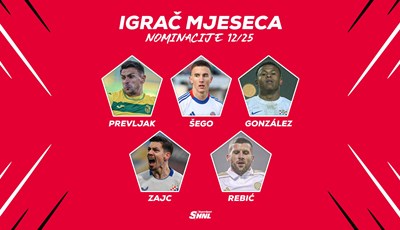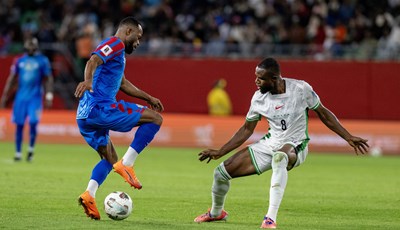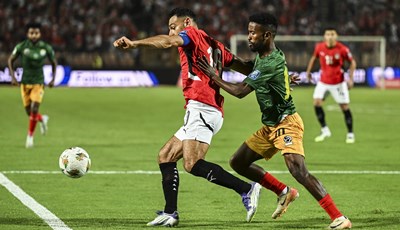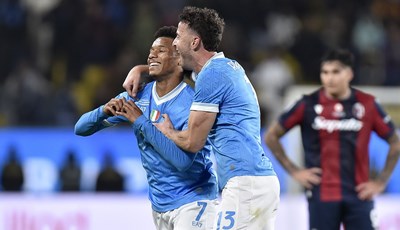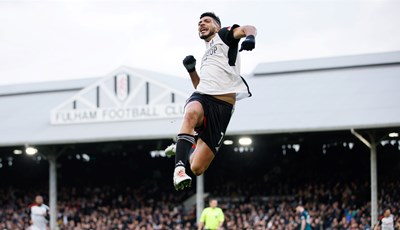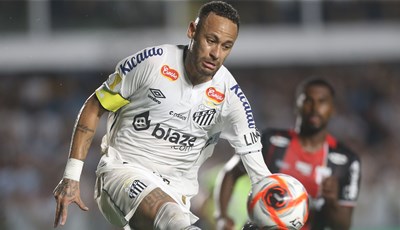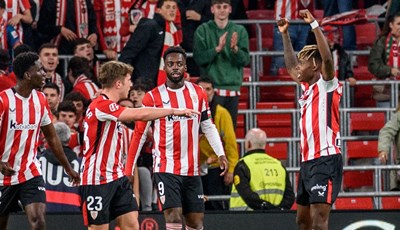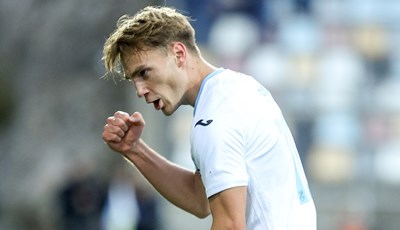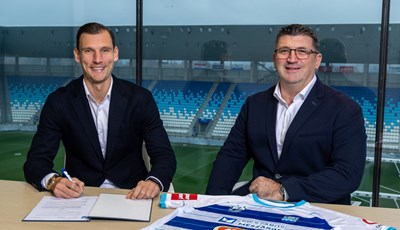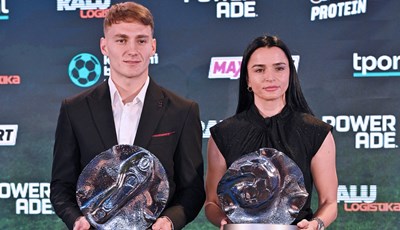A s druge strane u Berlinu (iz UEFA-inog magazina...)...
Euro File
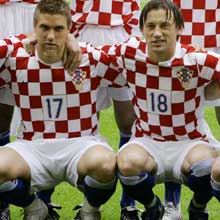 Ivan Klasnić and Ivica Olić - just two of the striking options available to Croatia (©Getty Images)
Ivan Klasnić and Ivica Olić - just two of the striking options available to Croatia (©Getty Images)Croatia's new forward thinking
Friday, 9 June 2006
by Elvir Islamovićfrom Zagreb
 e-mail
e-mail Print
Print
Eight years on, the bronze medal Croatia won at the 1998 FIFA World Cup in France seems like a dream, a nation of less than five million people finishing third at their tournament debut. Many Croatians still maintain that dream, hoping it can be repeated again. Coach Zlatko Kranjčar has developed an attacking game to reach that goal.
Attacking switch
Croatia's record in qualifying has been impressive: since breaking away from Yugoslavia in time for UEFA EURO 96™ they have reached all three World Cups and two out of three UEFA European Championship final tournaments. Since 1998, though, they have not progressed beyond any group stage, as successive coaches have fallen short with defensive strategies. But Kranjčar, appointed in 2004, has the strongest frontline since the glory days of Davor Šuker and Co, and having achieved one of the best scoring records in European qualifying, he intends to continue those positive tactics in the finals, where Australia, Japan and Brazil await in Group F.
Pršo form
The holders are Croatia's first opponents, and Kranjčar has even suggested he will deploy three forwards in an attempt to outmanoeuvre the tournament favourites. He has the talent at hand to do it. Firstly, there is the biggest name in his team, Dado Pršo. This is Pršo's first World Cup, and at 31 probably also his last, but it is only in recent years that he has truly shown his potential. His breakthrough was the four-goal feat for AS Monaco against RC Deportivo La Coruña on his 29th birthday, and he has continued to score since, with 31 in two years for Rangers FC and another in Croatia's recent 2-2 draw with Iran. "There is no match we cannot try to win," Pršo said with Tuesday's Berlin encounter with Brazil in mind. "There is nothing impossible in football."
Klasnić skill
But it is not just Pršo who can contribute goals. Ivan Klasnić managed 15 in the Bundesliga for Werder Bremen this season, and struck twice in the 4-1 friendly win against Austria, his second a superb solo effort to restore the Croatian lead. "We have a strong attack, especially lately, because you can see Pršo and Klasnić playing excellently together," his coach purred. Klasnić added: "For me it's most important that the team is functioning well. Then I can show my best. But I can say I never scored such a great goal as the one against Austria. I have to score goals, it's my job."
 Maybe I will start with three forwards against Brazil
Maybe I will start with three forwards against Brazil Zlatko Kranjčar
Zlatko Kranjčar
Speedy Olić
The third man is PFC CSKA Moskva's Ivica Olić, part of their UEFA Cup-winning team in 2005. His pace is an asset exploited by Kranjčar, and Olić's runs down the left are a worry for any defence, even one with Cafu at right-back. His CSKA team-mate Aleksei Berezutski warned: "Brazil don't have a player who can deal with the speed of Ivica Olić." He was expected to begin the finals on the bench, ready to be used by Kranjčar as his 'joker', but the coach recently hinted: "Maybe I will start with three forwards against Brazil."
'Hard preparations'
Whether Kranjčar abandons his trusty 3-4-1-2 formation remains to be seen, especially as Olić has only recently recovered from a broken leg, and remains a fine man to come on as a substitute. It was as a second-half replacement that he won the last-gasp penalty against Iran that Marko Babić converted to secure a 2-2 draw. "We have been through hard preparations, but we will be in top shape in Germany," Olić vowed. "Me and the whole team."
Attacking firepower
It is not just Pršo, Klasnić and Olić either. Boško Balaban spent the 2002 finals in Korea/Japan on the sidelines in the wake of his disastrous move to Aston Villa FC, but since joining Club Brugge KV in 2004 he has rediscovered the scoring form with which he made his name at NK Dinamo Zagreb. His free-kicks give Kranjčar yet another option, as he showed with his goal against Austria 12 minutes after his second-half introduction. "I am sure we are at least a bit better than Australia and Japan," Balaban said. "So I hope we will get through from the group." Also in the squad is Ivan Bošnjak, scorer of a league-leading 22 goals for Dinamo Zagreb this season. So while Croatia, fielding Dario Šimić, Robert Kovač and Josip Šimunić at the back and Igor Tudor holding the midfield, are as defensively strong as ever, they now have the attacking firepower to match the heroes of 1998.
